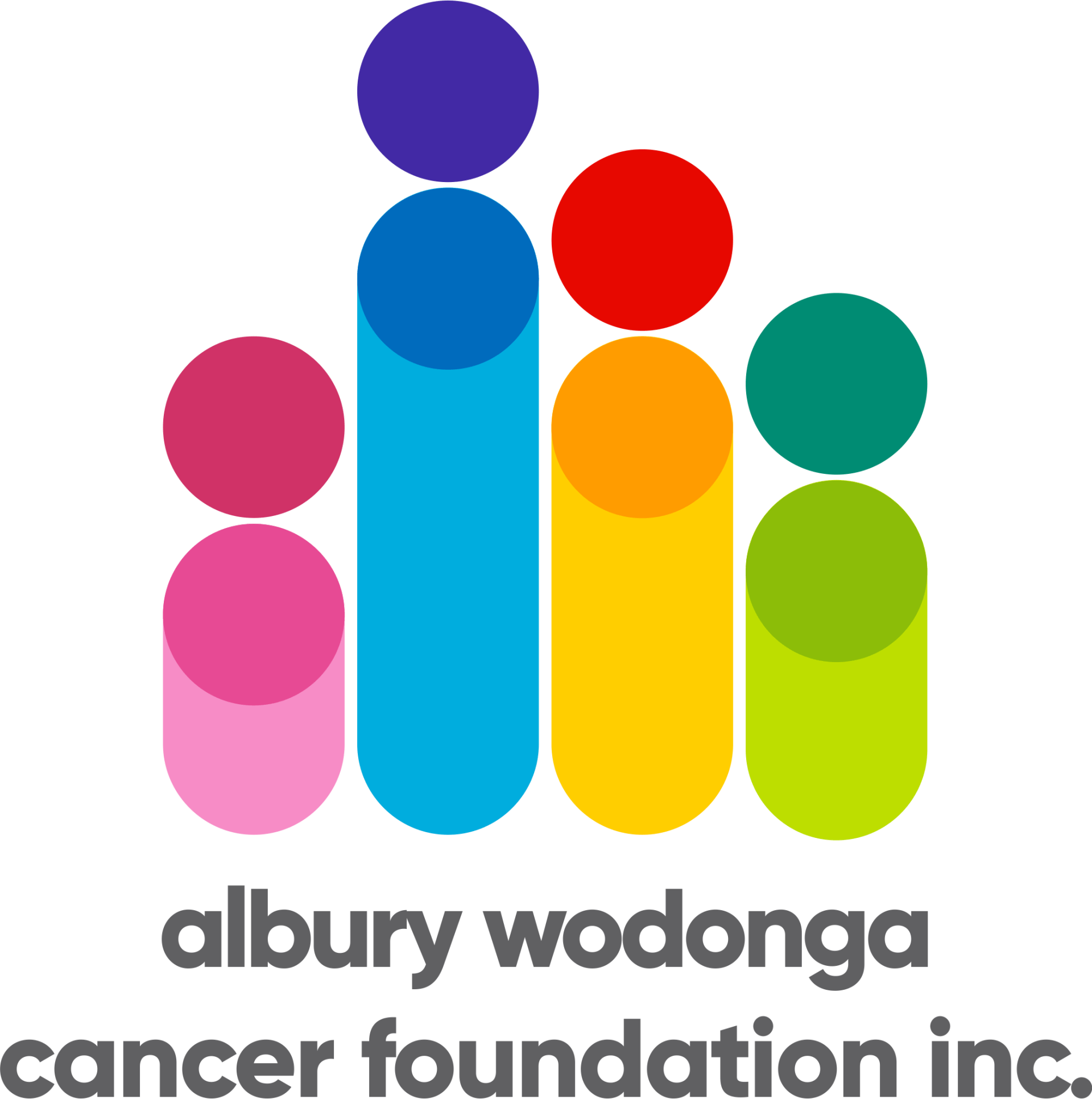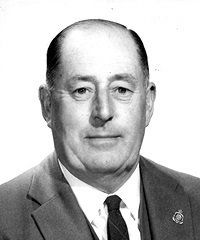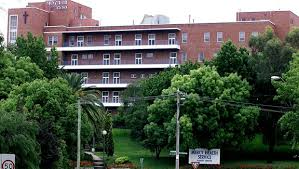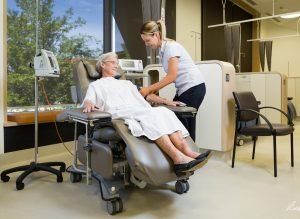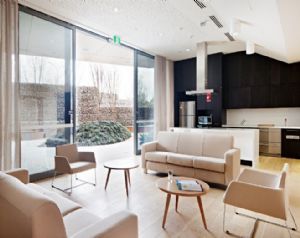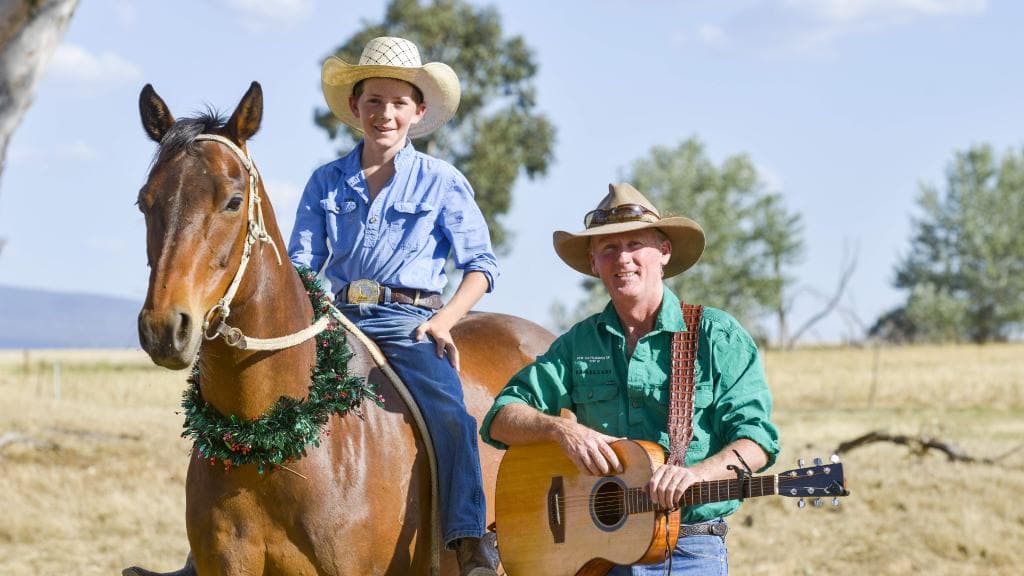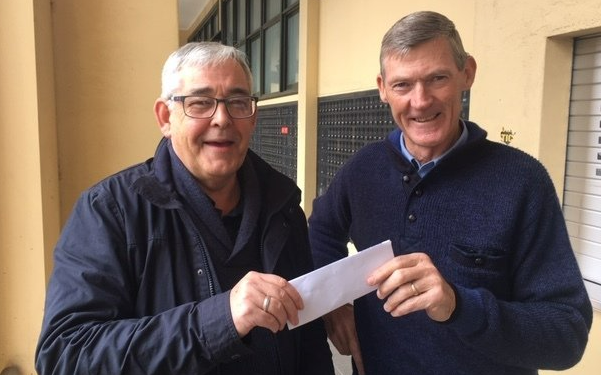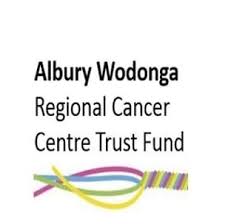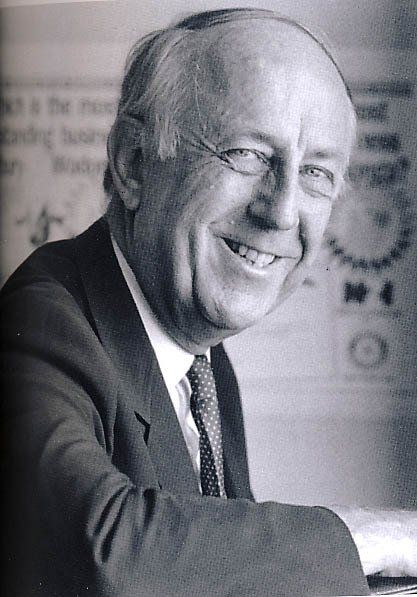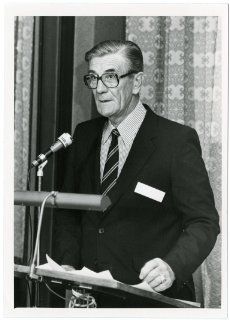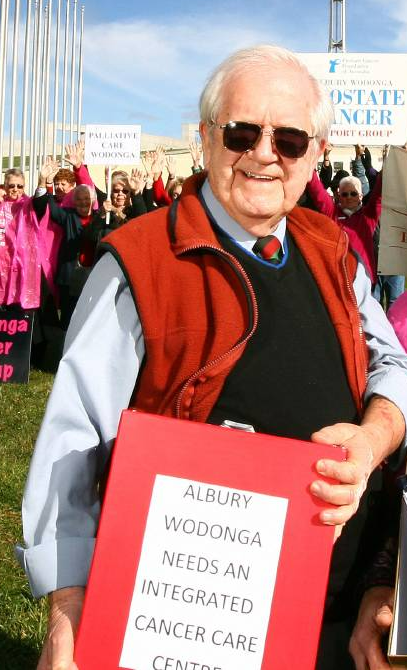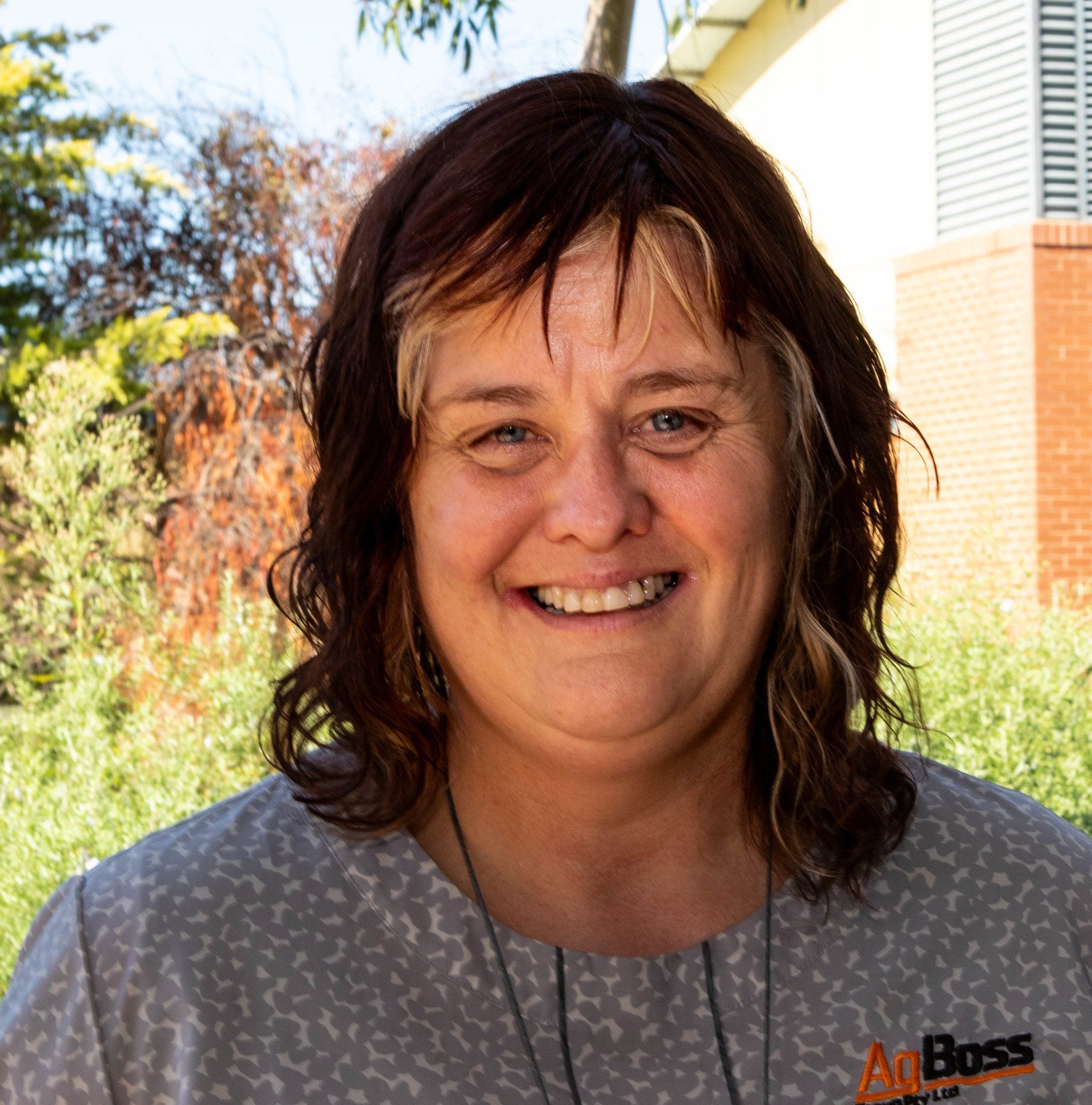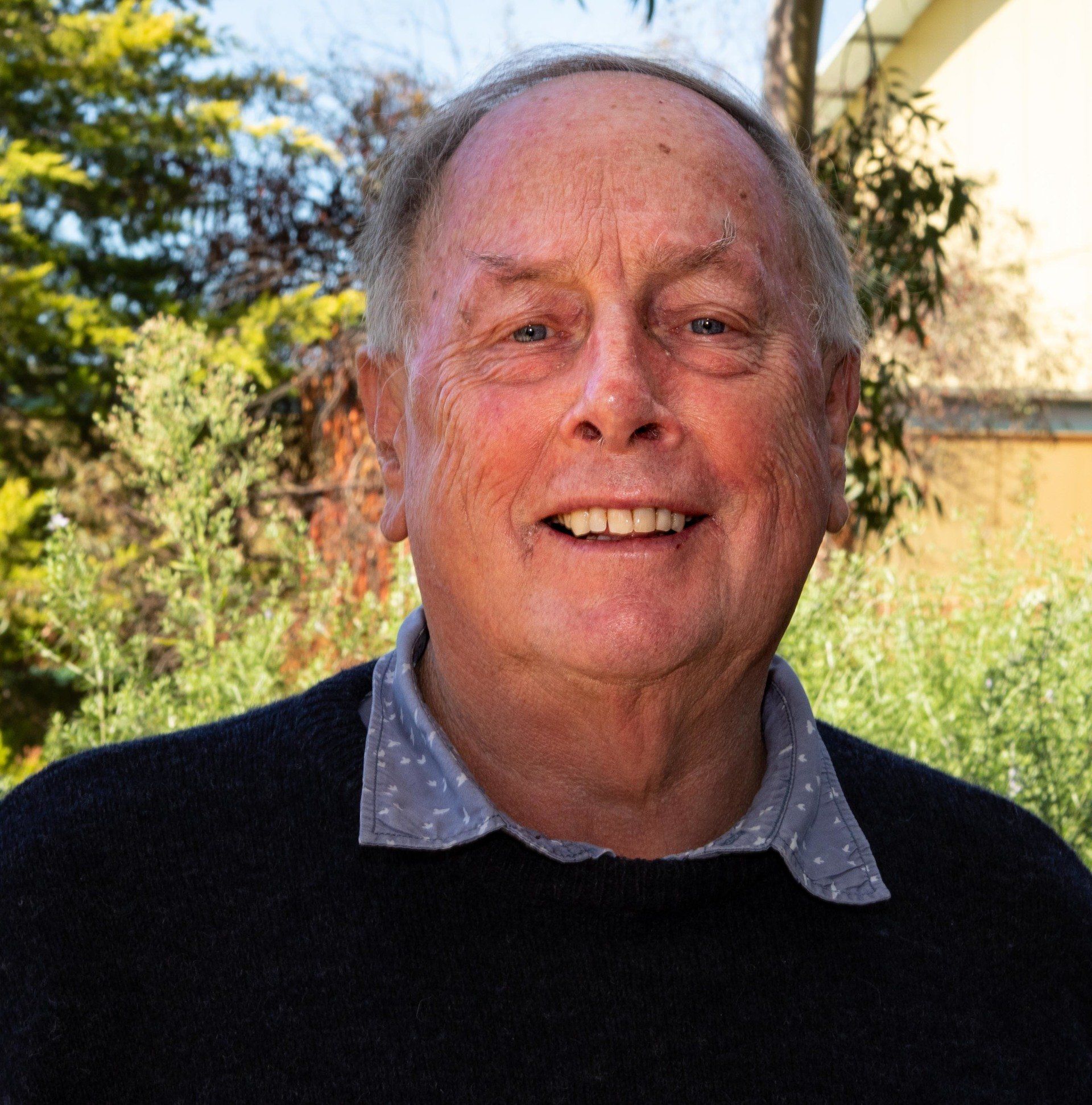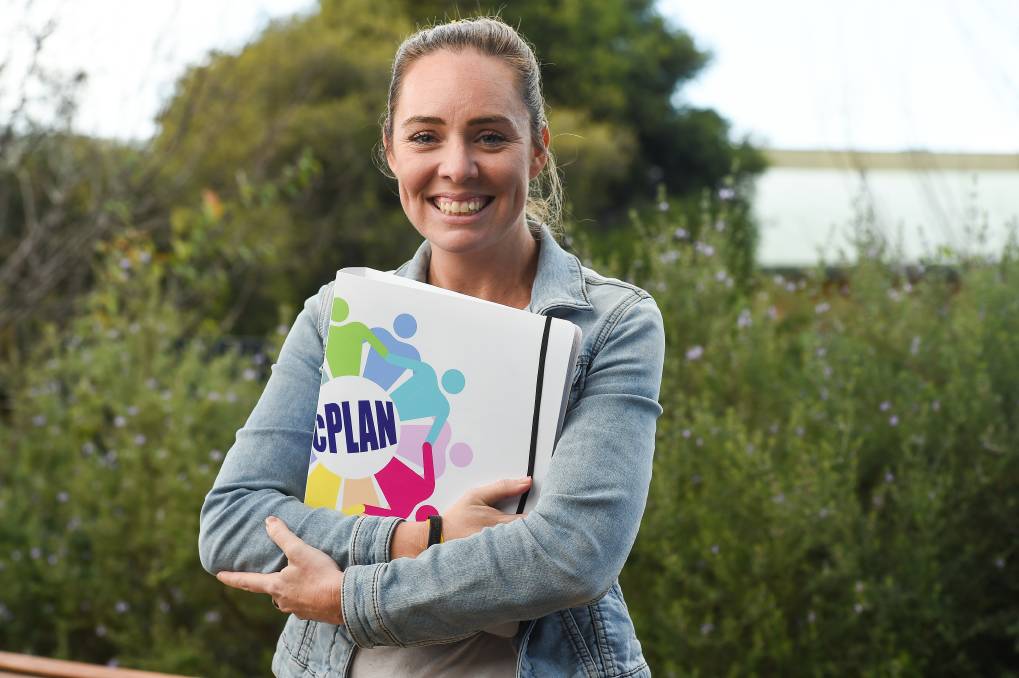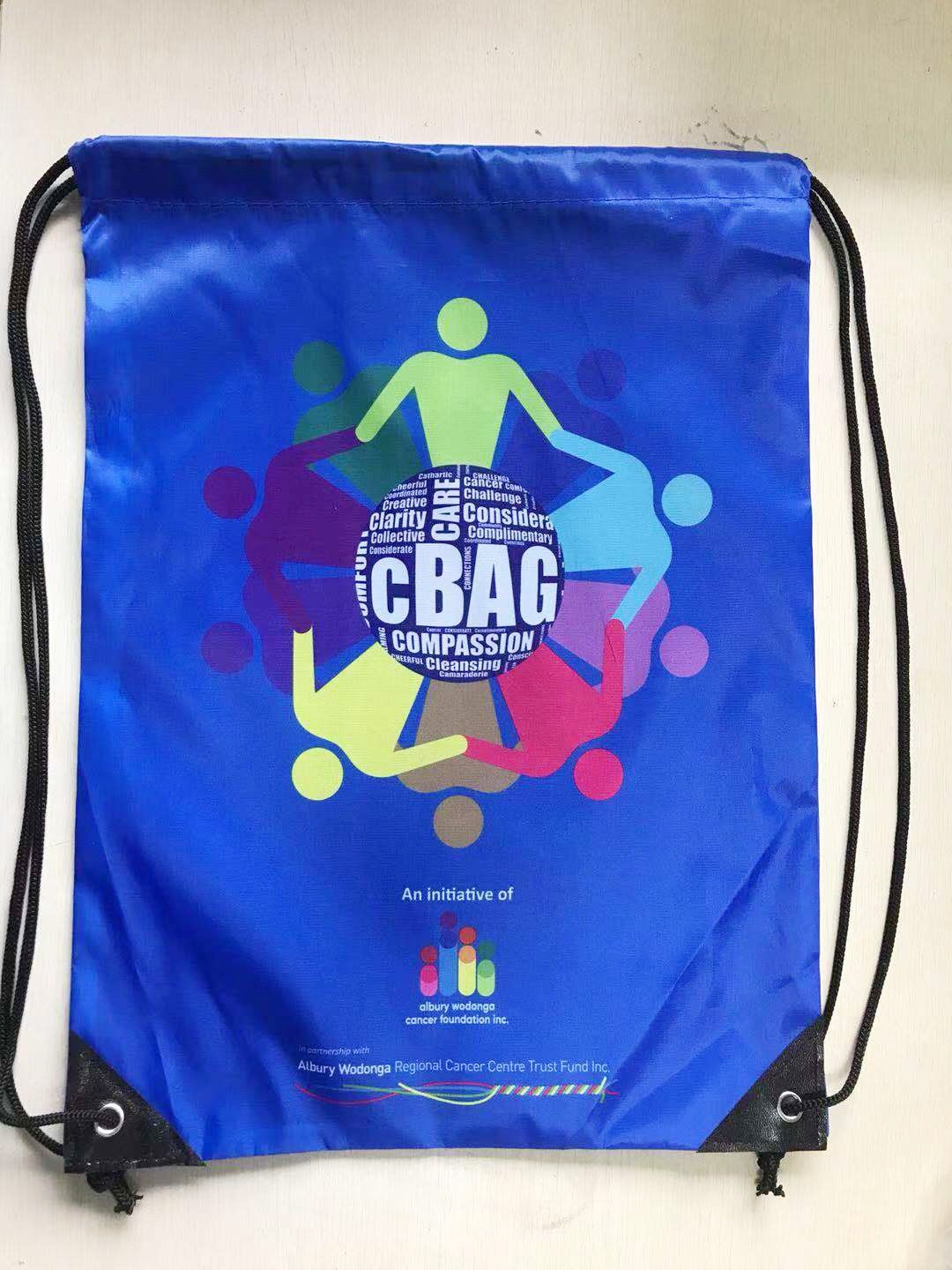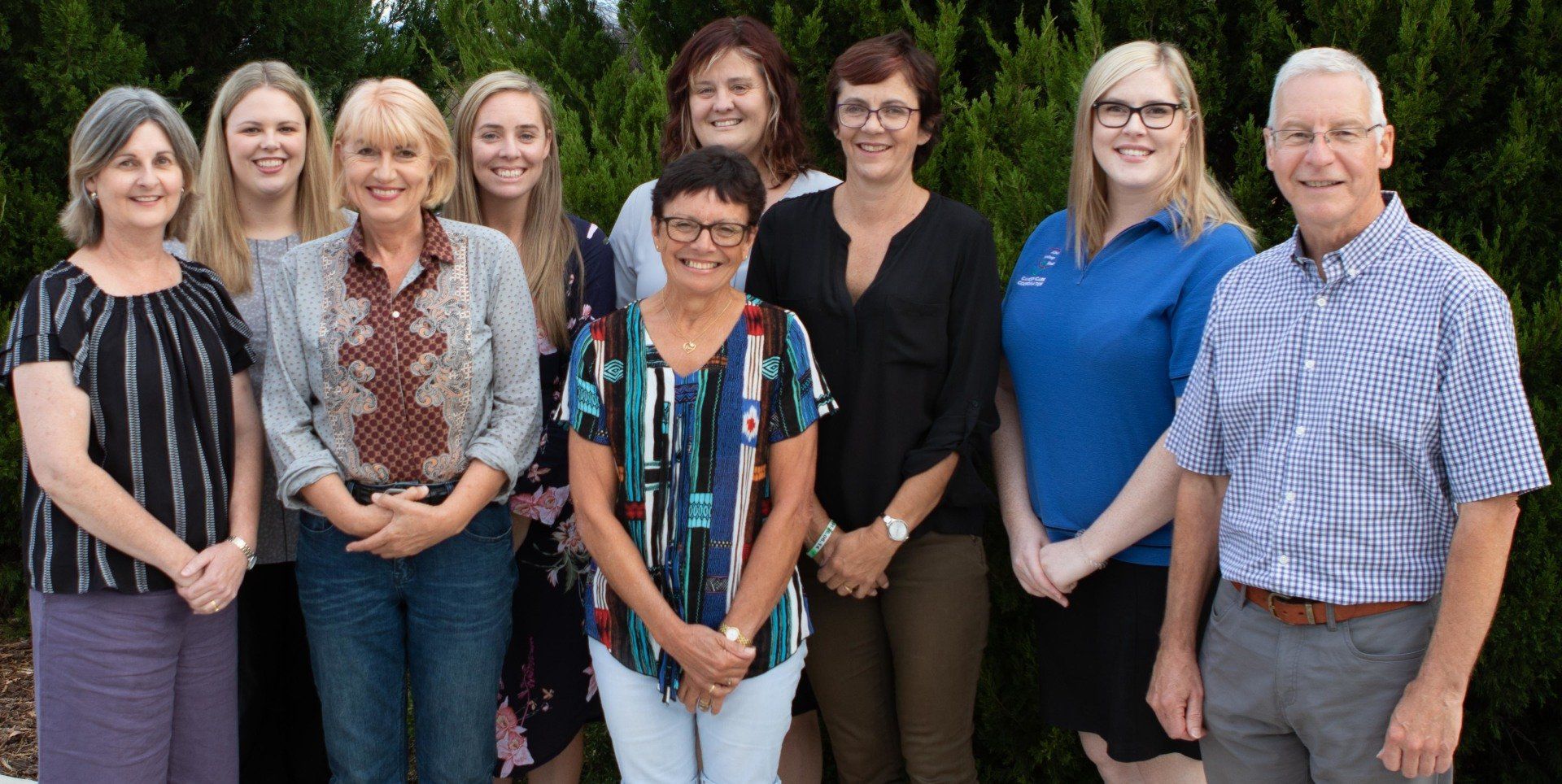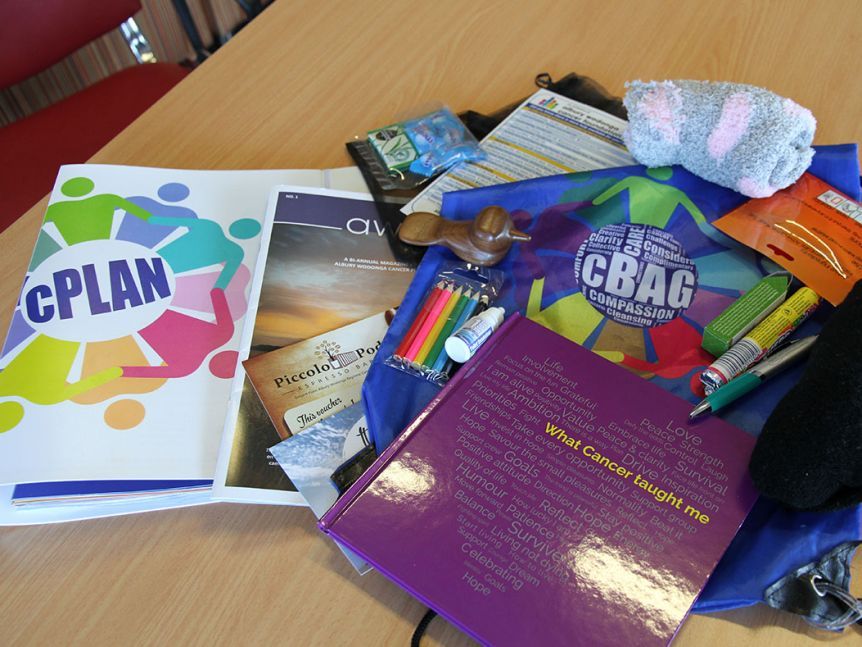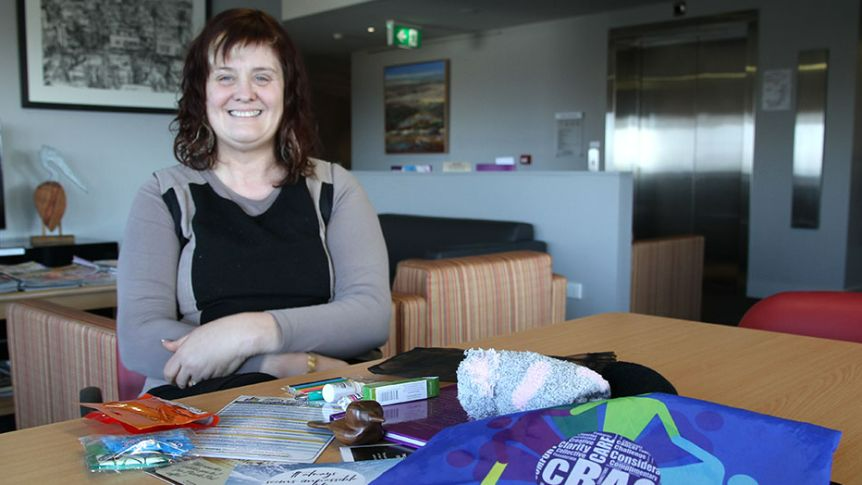History of the
Albury Wodonga Cancer Foundation Inc.
From no cancer services to be a leader in regional Australia
- The $65 Albury Wodonga Cancer Centre opened in 2016 to accommodate and house a centralised cancer diagnosis, treatment, research facility catering for both public and private patients;
- Leading oncology services with approximately 8% of all regional oncology specialists located in Albury Wodonga;
- A leading radiation treatment service operated by Genesis Care, including some of the most modern equipment, including a PET scanner, in a regional community in Australia;
- A 30 bed impatient service and 28 day chair chemotherapy facility operated by Ramsay Health:
- A number of cancer support groups located in the Albury Wodonga and surrounding regions.
- The Albury Wodonga region has approximately 70 active trained palliative care volunteers supporting cancer patients and their families.
- The cBag and cPlan developed for the benefit of all cancer patients in the region is unique in Australia.
- The Cancer Albury Wodonga website is unique in that there is no other similar web site in Australia which provides the wide range of information about cancer and cancer support services available in the local community;
- The AWCF Financial Assistance Programme conducted primarily through the oncology social workers, cancer nurses and care co-ordinators for the benefit of local cancer patients and their families is possibly the only one of its type in Australia;
- The Albury Wodonga Regional Cancer Centre Trust Fund which is established for the purpose of raising funds from the community to support enhanced cancer services in the region would be one of very few in regional Australia. The Fund supports the purchase of new equipment, professional development of staff, research, special projects and the Wellness Centre;
- The Albury Palliative care service and 10 bed hospice located on the 4th floor at the Mercy Health Albury is a recognised as a leader in its practices and care.
- The Hill Top accommodation Centre located next to the Albury Base Hospital is a high quality low cost accommodation centre for patients & families. Very few regional centres in Australia would have a facility of such size and quality; and
- The annual Relay For Life event conducted in Albury Wodonga by the Cancer Council of NSW is the biggest event conducted in regional Australia in terms of fund raising.
First meeting - 9th September 1986
The minute books reveal the first meeting of the AWCF was held, 9th September 1986. Discussion at the meeting recognised there was no dedicated cancer care and treatment services in Albury Wodonga. The initial project of the AWCF was to support Sister Jane Ayres introduce a Palliative Care Service to Albury Wodonga. Jane had established an introductory programme with the Albury Mercy Hospital.
The minutes of the first meeting reports that the establishment of the AWCF was support by the local hospitals and the two Departments of Health. The short term goal was to assist Jane Ayres with her palliative care project. The long term goal of the AWCF was to eventually have its own Cancer Care equipment locally, similar to that of the Peter McCallum Clinic in Melbourne.
The AWCF subsequently incorporated as a not for profit association and ever since then the AWCF has gone out to identify community needs and shortfalls in cancer services. The AWCF has endeavoured to see that these shortfalls are taken up by either Government, health authorities, private business or volunteer services. These actions are in accordance with the mission of the AWCF.
Mission
The minute books indicate the initial mission of the AWCF was :
The Albury Wodonga Cancer Foundation is a community based organisation whose activities are directed towards the establishment of an integrated specialist cancer care service to improve the delivery of treatment and to enhance the quality of life for cancer patients and their families through education with appropriate support.
Our mission now is to enhance the quality of life for people who have a cancer diagnosis and their families who live in the Albury Wodonga Region.
The First Executive & Pioneers
The original Executive of the AWCF were:
Directors
Gordon Mackie (Chairman)
Graham Lant
Wal McVicar
Jim Johnston
Gordon Craig
Dr John McDonald
Les Langford
Michael Wheatley
Pam Stone
Bruce Stanton (Secretary)
Brian Murphy (Treasurer)
Phil Williams (Legal advisor)
Noel Snare (Auditor)
Max Mueller (Chairman Of The Fund Raising Committee)
Key Achievements
The AWCF has played a significant role in regard to the following:
1. Establishing a volunteer Palliative Care Service
2. Albury Mercy Palliative Care 10 bed hospice centre
3. Cancer Specialist Care on the Border - Professor Fox
4. Radiation and Oncology Units
5. Death & Dying awareness program
6. Short stay accommodation for patients and families
7. The Creative Living Centre
8. Financial assistance for cancer patients and carers
9. Albury Wodonga Regional Cancer Care Centre
10. Albury Wodonga Regional Cancer Centre Trust Fund
11. Development of an informative web site
12. AWCF Financial Assistance Programme
13. Palliative Care review and recommendations
14. Review of oncology social workers and care co-ordinators
15. Cbag and CPlan
16. AWCF Magazine
17 AWCF web site and cancer related information
Establishing A Volunteer Pallative Care Service
Assisting Jane Ayres with her Palliative Care project was the first focus of the AWCF in 1986. The basis of Jane’s planned program included:
· Establishing a palliative Care service made up of volunteers to assist cancer patients;
· The assistance would comprise physical, social, emotional & spiritual support;
· Social/emotional support to be provided to both the patient and also their family;
· Bereavement care and counselling support was an essential part of the palliative care service;
· Care would be both at home and in hospital;
· Support that is available 24/7; and
· That there would be an employed Volunteer Co-ordinator to run the program.
At that time there were estimated between 500 to 600 people diagnosed each year with cancer in the Albury Wodonga region. There were four hospice beds for cancer patients at the Mercy Hospital principally cared for by Jane Ayres and two part time nursing support staff, Coral Marks and Gwenda Mueller.
Through the efforts of Jane and the support of the AWCF the following was achieved:
The NSW and Victorian Governments agreed to support the program via engagement of a full time volunteer co-ordinator funded one third by each of NSW, Vic and the Albury Wodonga Cancer Foundation Inc. Mrs Marion Starky was the first Co-ordinator of the volunteers appointed December 1987. Marion was followed by Valerie Crampton (Nov 1988), Ms Sandra Venn-Brown (Jan 1991) and Mrs Gayle Hill (Feb 1995).
The number of volunteers who undertook training in palliative care and offered support to patients and their families rapidly grew. Records indicate there were nine palliative care volunteer members as of March 1988, 26 in February 1989, 45 in April 1990 and by November 1996 there were 101 volunteers in Albury-Wodonga. The volunteer numbers peaked at approximately 125.
Subsequently Victoria Health took over management of its own palliative care program and so there are now two separate palliative care programs operating in Albury and Wodonga. Unfortunately, the Victorian Health decision has had a negative impact regarding volunteers in Wodonga and surrounding districts. In 2017 there were 65 volunteers associated with Mercy Health assisting cancer patients in Albury and surrounding districts but there was only 14 volunteers involved with the Wodonga Palliative Care service.
The AWCF also provided support to Mercy Health to establish and support development of palliative care volunteer programs in the regional areas. In 1989 Jane Ayres and Valerie Crampton established a pilot palliative care scheme at Corowa. In November 1996 Camilla Rowland was appointed as a part time outreach co-ordinator of Rural Palliative Care.
The AWCF funded 50% of the regional co-ordinator’s cost as a means of supporting the palliative care volunteer services in the surrounding areas of Albury-Wodonga.
Each year the AWCF funds the annual Christmas function which is held to recognise and to show appreciation for the great contribution made by the volunteers in supporting cancer patients.
Albury Mercy Palliative Care 10 Bed Centre
In 1986 there were only 4 hospice beds. In the early 2000's the AWCF was a key driver behind establishing a community fund to raise $1.75m to establish a 10 bed palliative care centre on the fourth floor of the Mercy Hospital in 2005.
The Albury Mercy Palliative Care Service provides a holistic care for patients whose disease or illness terminal. Control of pain, of other symptoms, and of psychological , social and spiritual needs is a paramount focus. The goal of the Albury Mercy Palliative Care Service palliative is to achieve the best quality of life for patients and their families in the last stages of life.
The AWCF contributed $350,000 in 2005 towards the project which involved a total refurbishment of the Mercy Health Service fourth floor to include 10 single rooms with ensuites, a patient/visitor lounge, the creative living centre, a beautiful chapel, a coffee nook and facilities for staff. The Sisters of Mercy led a major community fund raising project which raised $1.75m to assist in completing the project. Under the leadership of Lou Lieberman and Ian Glachan the community responded magnificently to the challenge.
Cancer Specialist Care On The Border - Professor Fox
In the early 1990’s Professor Fox, a Cancer Oncologist specialist based in Melbourne, would drive to Albury-Wodonga once a month to provide a high level of specialist care to patients that was otherwise unavailable in the region. Dr Jim Matar, a Radiation Oncologist also visited Albury Wodonga monthly as an outreach service however patients were still required to travel to Melbourne to complete Radiation Therapy treatment.
To increase the number of patients Professor Fox could attend to on his monthly visits the AWCF funded air tickets and accommodation for Professor Fox. This enabled Professor Fox to spend more time in the region attending to patients rather than Professor Fox driving to and from Melbourne to Albury.
Dr. Craig Underhill worked with Professor Fox in Melbourne. Eventually Craig started seeing patients on the Border and subsequently relocated to the Border to live and work full time. Craig is recognised as one of Australia’s leading Oncologists.
Radiation And Oncology Units
The AWCF worked for several years in obtaining statistics and lobbying State and Federal Governments in an attempt to have both a Medical Oncology Unit and a Radiation Oncology Unit established on the Border. One of the key problems encountered was that as health was State administered that often the State Governments viewed Albury and Wodonga as two separate communities. For example it was difficult to obtain recognition that cancer statistics relating to Wodonga should be included in any submission to the NSW Government as Wodonga was not part of their jurisdiction even though Wodonga residents crossed the State border for treatment.
The development of Medical Oncology and Radiation Oncology Units was eventually taken up by private business with the establishment of a Radiation Oncology, Medical Oncology and a Chemotherapy service at the Murray Valley Private Hospital in Wodonga. This has since relocated to the Albury Wodonga Regional Cancer Centre in Albury.
There are now six medical oncologists based in Albury Wodonga.
Dr Brett Hamilton works as Albury Wodonga Cancer Care, Padman Drive Albury.
Dr Craig Underhill, Dr Kerrie Clarke, Dr Christopher Steer, Dr Richard Eek and Dr Anish Puliyayil operate as Border Medical Oncology. Border Medical Oncology is recognised as a leading regional centre for excellence in cancer care. It is a specialist medical practice dedicated to the treatment of patients diagnosed with solid tumours (cancers) and haematological malignancies (lymphomas and leukaemia’s). Dr Craig Underhill and Dr Christopher Steer chair, or have chaired both National and International Committees aimed at enhancing cancer services. In addition Border Medical Oncology is actively involved in research and new trials and as such it places them as a leader in Australia. It also provides an opportunity for cancer patients in the region to gain access to some of the newest releases of cancer treatment in Australia.
In addition Radiation Oncology Victoria (ROV) established its radiotherapy services at the Murray Valley Private Hospital in April 1999. The Wodonga unit treated approximately 55 to 60 patients a day. Radiation services are now provided by GenesisCare at the Albury Wodonga Regional Cancer Centre. Radiation Oncologists are Dr. Craig MacLeod, Dr Christopher Daniels and Dr. Eddy Ong.
The community of Albury, Wodonga and surrounding regions is extremely fortunate to now have leading medical oncology and radiation oncology specialists operating locally rather than having to travel to Melbourne and Sydney for treatment.
Death & Dying Awareness Program
In 2015 the AWCF undertook a community education program about the need to openly discuss death and dying within the family. The program involved several short commercials featuring well know local identities in Eric Turner, Greg Aplin, Jenny Black, Steve Bowen and Josie Lindner and was shown on TV, together with a feature in the Border Mail.
Short Stay Accommodation For Patents & Their Families
The provision of short term stay accommodation for cancer patients and their families has always been an issue in Albury Wodonga, especially with so many patients coming from outer areas of up to 200km.
In 1992 the AWCF provided funding for the establishment of five short term accommodation rooms in the nurses quarters at the Old Base Hospital located in Wodonga Place, opposite the Albury Botanical Gardens.
Upon the Base Hospital relocating to East Albury short term accommodation facility was unavailable for many years.
Fortunately in 2013 a state of the art 20 unit short stay accommodation facility was opened at Hilltop, adjacent to the Albury Base Hospital. The Hilltop Accommodation Centre provides patients and their carers with comfortable and affordable accommodation adjoining the Albury Base Hospital, the Albury Wodonga Regional Cancer Centre and other local treatment centres. In 2021 the Hilltop accommodation facilityy was increased to 30 units.
The Hilltop project was lead by the Fight Cancer Foundation, Rotary Club of Albury North and Zonta Club of Albury Wodonga and Lions District. In excess of $5m was raised to develop the facility. The facility is available for all medical patients and their families and is not restricted to cancer patients. The Albury Wodonga Cancer Foundation donated $50,000 to the Centre and the Conference Room is named in recognition of the support the AWCF provided. The AWCF Board now has it bi-monthly meetings at the Hilltop Conference Room.
The Creative Living Centre
The Mercy Albury Palliative Care Creative Living Centre commenced operation on the 4th October 2005.
The Creative Living Centre (CLC) operated for four hours on a Tuesday and Friday. Special functions are also arranged for every Thursday which provides a range of entertainment for those who attend.
The cancer patients attending the Creative Living Centre are supported by a team of palliative care volunteers operating on a roster system.
The CLC provides the following range of activities:
• Capturing memories via means of a memory box, journal or scrapbooking
• Card making
• Letter writing
• Hand/Foot massage
• Computer skilling
• Relaxing by the water feature, and
• The opportunity of sharing a meal and conversation and to enjoying each other’s company.
The freshly cooked afternoon teas, including cakes and cappuccino's offered to the patients and their visitors in the Palliative Care Centre and CLC. This has prompted very positive feedback from patients, families and friends.
The Centre aims to honour a person’s individuality and enhance a person’s quality of life. Flexibility and variety is offered as a means of meeting the needs and interests of the individual. Both individual and group activities are offered.
The CLC allows the opportunity for community registered patients and families to visit and familiarize themselves with the palliative Care Centre in a relaxed and supported way. This facilitates an easier process of transfer from home to the hospice.
The AWCF provided $15,000 of funding for the fitout and equipment for the Creative Living Centre.
Financial Support For The AWCF
The AWCF is not an organisation that has sought or required significant amount of funds to be able to operate and achieve its goals.
However like all organisations the AWCF could not exist without funding. As such the success of the AWCF can be attributed to the ongoing financial support of a handful of local organisations. Notable financial support is provided by:
- The Albury Rotary Club Of Albury co sponsors the AWCF Financial Assistance Programme
- Brave Hearts On The Murray Inc. co sponsors the AWCF Financial Assistance Programme
- Commercial Club (Albury) Ltd co sponsors the AWCF Financial Assistance Programme
- The Holbrook RS Club Veteran Golfers Association who have run an annual golf tournament for the AWCF since 1993.
- The Rotary Club of Lavington who commenced contributions in 1992.
- Danny Phegan who has raised approximately $600,000 for cancer research and support organisations including a donation of more than $50,000 to the AWCF.
- Howlong Veteran Golf Club who ran an annual golf tournament for the AWCF for 30 years from 1988 to 2017.
- Peter & Kate Tobin provide financial support our Financial Assistance Programme.
The AWCF is indebted to those organisations and the individuals within the organisations for their continued support. The AWCF would not be able to operate without their generosity.
AWCF involvement in obtaining the Albury Wodonga Regional Cancer Centre
One of the greatest achievements of the AWCF was the role it’s president Eric Turner played together with several other community leaders in lobbying both the local community and also the Federal Government to have the Government commit to spending $65m on establishing a state of art Cancer Centre in Albury Wodonga.
The Albury Wodonga Regional Cancer Centre as opened in 2016.
Initially the Federal Government refused the application for a Cancer Centre in Albury Wodonga. Chairman Eric Turner and other members of the community, namely Jenny Black, Steve Bowen and Dr Caig Underhill held a rally at the Commercial Club at which approximately 500 people attended. A petition gathered 17,000 signatures registering community disappointment in the decision not to build a Cancer centre in this area.
A coach carrying representatives from the community groups travelled to Canberra to deliver the Petition to Minister Snowden. Our approach was again rejected.
Statistics showed that 1400 people are diagnosed with cancer each year in our region. Another rally was held on the “Causeway” between Albury and Wodonga where over 1500 people wearing yellow ponchos formed the shape of a heart to send a message to Government that the community had a concern that Albury Wodonga was been neglected in considering where cancer centres should be established in Australia.
In 2012 the Federal Government eventually reversed their previous decisions and agreed to build a Cancer Centre in Albury Wodonga.
Eric Turner went on to be a community representative on the team appointed to design the Regional Cancer Centre.
The AWRCC Wellness Centre is open Monday - Friday 9.00am - 3:00pm.
There are many activities and programs conducted through the Wellness Centre including:
- Brave Hearts Wig Library
- Look Good Feel Better
- Carers Group
- Women's Wellness Support Group
- Cancer Council Programs
- Cancer Council Webinars
- Men's Cancer Support Group
- Art Relaxation Group
- Afternoon Tea in the Wellness Centre Lounge area
- Mindfulness Meditation
- Oncology Massage
- Counselling
The Wellness Centre assists in providing a holistic care for cancer patients rather than just clinical care. The Wellness Centre is substantially supported financially by the Albury Wodonga Regional Cancer Centre Trust Fund.
AWCF establishes the Albury Wodonga Regional Cancer Centre Trust Fund
In 2012 the Federal Government announced it would build a $65m Cancer Centre in Albury Wodonga. It was recognised that when the $65m Albury Wodonga Region Cancer Care Centre was opened that there would be additional needs for the centre to enhance it's benefits to the community. As such the AWCF identified a group of business and community leaders to drive a community fund raising programme which had an aim to raise $2m which would be used to fund the additional needs. These goals have been well exceeded.
The AWCF resolved to establish a separate not for profit entity to undertake the fund raising and administration of the funds as large scale fund raising is not part of the activities of the AWCF. The entity is called the Albury Wodonga Regional Cancer Centre Trust Fund.
Geoff Smith, along time director of the Albury Wodonga Cancer Foundation Inc. took a lead role in the establishment and development of the Trust Fund. Geoff was the secretary of the Trust Fund from inception in 2012 until he retired from the fund in 2018. A large part of the success of the Trust Fund is due to Geoff Smith’s tiresome commitment to ensure the fund was a success.
The Albury Wodonga Regional Cancer Centre Trust Fund is now the biggest local charity fund raiser in the region.
Chairpersons of the AWCF
The AWCF Board Chairperson has significant influence in regard to the achievements of an organisation.
The AWCF has accomplished significant achievements through the leadership of:
- Gordon Mackie (1986 to 1990) MP – Member for Albury
- Gordon Craig (Acting Chairman -1990 upon Gordon Mackie’s sudden death)
- Harold Mair (1990 – 1993)
- Graham Lant (1993 to 2001)
- Eric Turner – (2001 to 2016)
- Jenny Jensen – Appointed 2016
- Geoff Smith - Appointed 2022
The Albury Wodonga and surrounding region have been well served by the chairperson of the Albury Wodonga Cancer Foundation Inc. in enhancing cancer services in the local community.
The contribution of Eric Turner has been significant in ensuring the cancer services in the region have been enhanced and especially in regard to the role Eric played in gaining community support to rally the Federal Government for the commitment to build a Cancer centre in Albury Wodonga. Eric’s contribution to the community and his work in enhancing cancer services in the region was recognised by Eric being awarded the 2012 Albury Citizen of the Year award.
AWCF Board Members & Officers
The current Board members and officers comprise:
Board members
- Geoff Smith - Chairperson
- Judith Peterkin - Deputy Chair
- Peter Tobin – Director & Treasurer
- Stacey Heer - Director
- Sharon Gardiner - Secretary
In addition the AWCF quarterly board meetings are attended by community representatives including Louisa Thompson who has regularly attended meetings for more than 20 years.
For details of the Board members refer to AWCF Board on the website
AWCF Financial Assistance Programme
One of the main projects and expenditure of the AWCF has relates to its Financial Assistance Programme. The AWCF Financial Assistance Programme is unique in that we are unaware of any similar scheme in Australia.
The AWCF provides financial assistance to patients who find themselves in financial difficulty due to their cancer. The normal assistance is up to $700 but in exceptional circumstances the AWCF provides in excess of the $700.
To access the AWCF Financial Assistance Programme cancer patients and/or their carers should discuss their financial difficulties with their Oncology Social Worker, Cancer Care Co-ordinator, or Palliative Care Co-ordinator. Those professionals will then access a vast range of financial support available including the AWCF Financial Assistance Programme.
The history of the financial assistance programme commenced in 2006. In November 2006 the AWCF conducted a community forum to identify gaps and solutions in regard to cancer services in the region. The forum identified that due to the impact of cancer, many patients face severe financial difficulties due to their income earning capacity being reduced and at the same time facing significant extra costs for treatment and care.
As a result of that community forum the AWCF has operated a Financial Assistance Programme to assist cancer patients in dire financial needs as identified by social workers operating in the health system. This program requires between $70,000 and $110,000 a year to operate.
The number of patients has increased substantially in the past few years from 17 in 2015-16 to 179 in 2022-23.
Of patients supported approximately 30% are from Wodonga, 30% from Albury and 40% from the surrounding districts.
The AWCF Financial Assistance Programme has been directly funded by generous donations from Brave Hearts On The Murray Inc, The Rotary Club Of Albury and the Commercial Club (Albury) Ltd.
Review Of Palliative Care Services
In 2018 the AWCF undertook a detailed review of the palliative care services in the Albury Wodonga region including a comparison to the published services palliative care should entail as defined by Palliative Care Australia.
The major aim of the report was to support the development of an integrated and coordinated palliative care service across the region centred on Albury Wodonga, as the present services are very disjointed, lack coordination and provides limited services to outlying communities.
The report recognized the potential for Mercy Health Albury and the Albury Wodonga Health Palliative Care Services to develop a new cooperative model of palliative care to suit the expanding region.
Palliative Care is a time in life when we deserve to have the best care around our choice to die how we want to. Our relatives need to have the best possible experience and support to spend the last days with loved ones as possible.
The goal of the report is to improve the quality of life for those people facing death in the Albury Wodonga Health (AWH) catchment area.
The report reviewed the palliative care services in the Albury Wodonga Health catchment area by identifying its current status and what enhancements should be undertaken in order to provide a quality palliative care service. A quality palliative care service comprising:
- Early identification and intervention of all palliative care patients.
- Appropriate clinical and holistic care and support provided in the appropriate locations with palliative care trained resources.
- Ensuring families, carers and medical personnel are educated in understanding what quality palliative care is and how the AWH catchment palliative care operates so appropriate palliative care is provided.
The review identified significant opportunities for enhancements and provided a comprehensive list of recommendations. Some of the suggested enhancements have been implemented. The AWCF is working with the applicable parties in an attempt to implement the remainder of AWCF recommendations which we strongly believe would see a more cohesive and enhanced quality palliative care service for Border residents.
Review of AWH Oncology Supportive Care
In 2021 the AWCF undertook a high level review of Albury Wodonga Health oncology supportive care and social work service.
The aim was to review the current status of the oncology social services in the AWH catchment area and what enhancements, if any should be undertaken in order to provide a quality oncology social work service. In addition in undertaking the review the AWCF attempted to identify any suggestions that the people interviewed could identify that would enhance the cancer services in the local region.
The main conclusions of the review included that most cancer patients in the AWH catchment region in need of social worker support are identified and attended to with the stretched resources available.
Cbag & Cplan
The cBAG and cPLAN were an amazing supportive care package put together by a sub-committee of the AWCF to help support patients on a diagnosis with cancer.
The Cbag is the concept of Jenny Jensen and the cPlan is the concept of Cristy Jacka. The items that went into the care package followed various discussions with cancer survivors, patients, support people and those working in the field. The cBAG was designed to be a practical 'showbag' for patients with cancer. It included items such as mints to disguise bad tastes, odour eliminator, hand warmers and fluffy socks for warmth, an information magnet for numbers needed in a hurry, coloured pencils for mindfulness drawing, a book of inspiring local stories and a carved wooden item to hold for comfort.
The cPLAN was part of the care package. Cristy Jacka lost her husband in 2017 and she wanted everyone to have a 'wedding planner' for cancer. Somewhere that everyone could keep the important information and records that became part of your life when diagnosed with cancer.
In December 2022 the cBag & cPlan were transferred from the Albury Wodonga Cancer Foundation Inc. to Cancer Care Support Australia Inc.
Information, confusion & lack of knowledge
In November 2006 the AWCF conducted a community forum to identify gaps and solutions in regard to cancer services in the region. The forum identified that many cancer patients, carers family and friends have difficulty in sourcing and understanding many issues relating to cancer and their cancer journey. Those issues include:
- Medical
- Emotional
- Financial
- Support services
- Service providers
- Etc.
As a result the AWCF has attempted to provide a comprehensive range of information within this web site that may assist people diagnosed with cancer.
Conclusion
When established in 1986 the short term goal of the AWCF was to establish a quality palliative care service for the region. The long term goal was for Albury Wodonga to have its own Cancer Care equipment located locally similar to that of the Peter McCallum Clinic in Melbourne.
The AWCF is pleased to see the goals the community set at the first AWCF meeting so many years ago has been largely met.
The AWCF future goal is to see cancer services enhanced even further for the benefit of people diagnosed with cancer and their families in Albury-Wodonga and surrounding communities.
